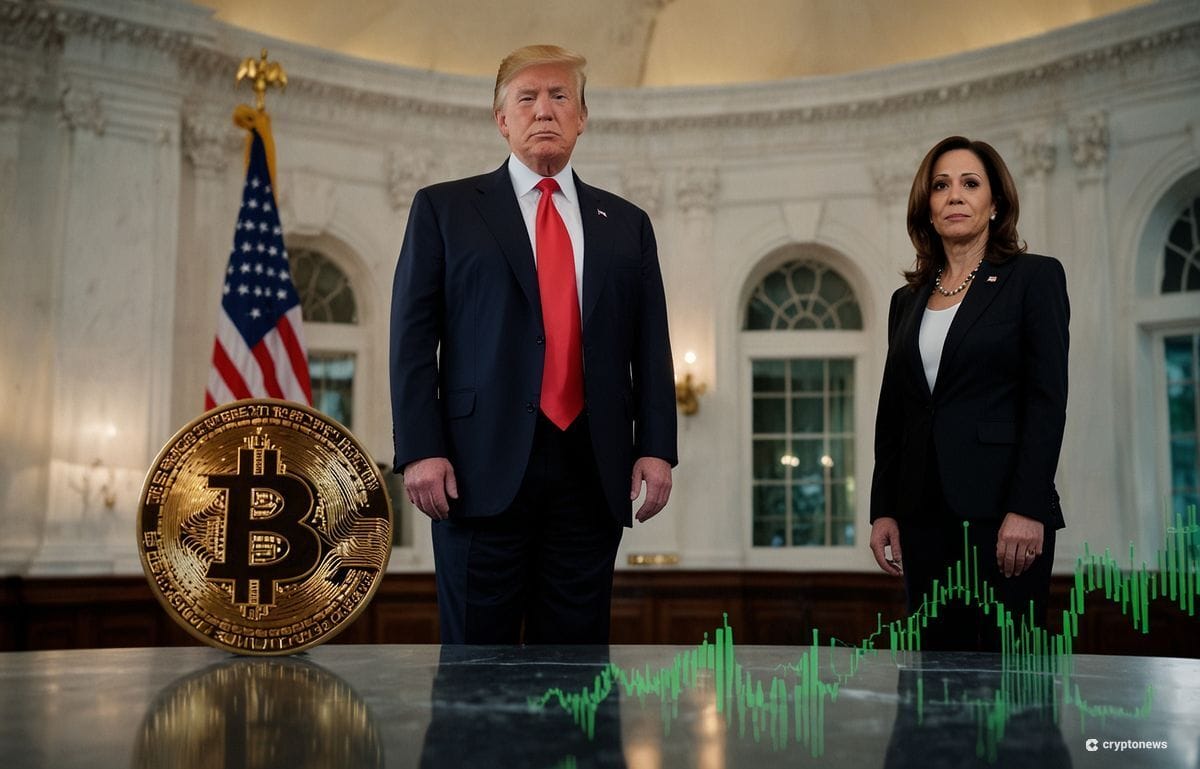The cryptocurrency industry is currently abuzz with discussions surrounding the potential impact of the 2024 U.S. presidential election on Bitcoin. BlackRock CEO Larry Fink recently shared his perspective on this matter during a Q3 earnings call, stating that he believes the election outcome may not significantly impact Bitcoin’s long-term trajectory. Fink views Bitcoin as an “asset class in itself” that has the potential to transcend global politics, highlighting the importance of liquidity and transparency in driving continued adoption of cryptocurrencies.
While former president Donald Trump leads as the favored candidate on polymarket, with Vice President Kamala Harris also gaining traction, Fink’s comments raise questions about the relevance of political figures in shaping the crypto industry’s future. Trump has positioned himself as a proponent of innovation, aiming to establish the U.S. as the global “crypto capital” if re-elected. In contrast, Harris has expressed intentions to implement clear regulations for digital assets. Despite the bipartisan support for cryptocurrencies, Fink’s perspective suggests that regulatory clarity and market dynamics may hold more weight in determining crypto adoption.
Although Fink downplays the impact of political figures on Bitcoin, regulation remains a crucial aspect of the cryptocurrency industry, especially in the U.S. The Securities and Exchange Commission (SEC) has faced criticism for its ambiguous approach to crypto regulation, with Commissioner Mark Uyeda labeling it a “disaster.” The SEC’s strategy of “regulation-by-enforcement” has come under scrutiny for lack of clear guidance, leading to legal challenges and inhibiting industry growth. A coalition of seven U.S. states has challenged the SEC’s regulatory overreach, arguing that the current framework stifles innovation and exceeds the agency’s authority.
As the cryptocurrency market continues to evolve, the role of regulation and market dynamics in shaping its future cannot be overlooked. While political endorsements and candidates’ positions on digital assets may generate buzz in the industry, the underlying factors of liquidity, transparency, and regulatory clarity are likely to have a more significant impact on crypto adoption. Larry Fink’s perspective on Bitcoin as an independent asset class highlights the importance of these fundamental elements in driving the global expansion of digital assets. Looking ahead, the industry will navigate a complex landscape of evolving regulations, market trends, and geopolitical influences to establish a sustainable and inclusive ecosystem for cryptocurrencies.










